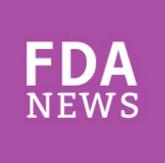For the third time in 10 days, a compounding pharmacy has issued a voluntary recall of its products, this time after state and federal inspections found visible particulates floating in vials of several sterile compounded products used for a range of health concerns.
No injuries or illnesses have been reported to date, according to a notice posted by the pharmacy, Pallimed Solutions of Woburn, MA, on its website.
Until the contaminants are identified, the potential health risks remain unknown, according to the Food and Drug Administration in a recall notice posted on its website. Particulate matter has the potential to damage or obstruct blood vessels, which could induce emboli, cause systemic allergic reaction or cause tissue responses to foreign matter, according to the agency.
The recalled products were packaged in glass vials and were dispensed directly to patients and/or physicians’ offices in 21 states from Jan. 1 to March 22 by Pallimed Solutions, doing business as Pallimed Pharmacy.
The products are used for a variety of therapeutic purposes including the treatment of erectile dysfunction, testosterone replacement therapy, vitamin injections and ophthalmic preparations.
The products include alprostadil in NS injection; atropine injection; bacteriostatic H20; bimix injection; trimix injection; quadmix injection; cyclosporine ophthalmic; DMSO aqueous irrigation; gentamicin sulfate irrigation; methylcobalamin PF; HCG; MIC with B6 & B12; tacrolimus ophthalmic; testosterone cypionate/propionate injection; testosterone cypionate injection; and vancomycin ophthalmic, PF.
The company issued the recall after the particulates were identified during an inspection by the FDA and Massachusetts Board of Registration in Pharmacy. Why those inspections were being conducted is unclear, and further details were not available from the FDA.
The Massachusetts Board of Registration has issued a cease-and-desist order covering sterile compounding operations, but the body allowed Pallimed to continue making and selling nonsterile compounding products or other products unrelated to its sterile compounding operations, according to the company.
Massachusetts has been a hotspot in the recall of compounded medications after a deadly meningitis outbreak last fall was tied to contaminated injections of methylprednisolone distributed by the New England Compounding Center in Framingham.
More recently, the compounding pharmacy, Med Prep Consulting Inc. of Tinton Falls, N.J., issued a voluntary recall on March 16 after clinicians spotted what was later confirmed to be mold floating in one of its intravenous solutions.
On March 18, Clinical Specialties Compounding Pharmacy in Augusta, Ga., issued a voluntary nationwide recall of unit dose syringes of the cancer drug Avastin after reports surfaced of serious eye infections.
In a recent official blog, FDA Commissioner Margaret Hamburg proposed charging compounding pharmacies registration and other fees to cover the additional oversight needed to prevent a recurrence of the meningitis outbreak.
All users and recipients of products compounded by Pallimed have been or will be notified of the recall and have been instructed to return the product, request assistance, or report complaints to the pharmacy at 781-937-3344 or at www.pallimed.com.
Pallimed also advised patients to contact the Pharmacy Compounding Accreditation Board or their physician to find a recommended pharmacy where they can obtain replacement medications.
In a telling remark, the company added, "Pallimed cannot recommend a compounding pharmacy that has the capabilities to fulfill these needs under the current Board of Health requirements."
Patients and healthcare professionals are also asked to report adverse events that may be related to the use of the products to the FDA’s Adverse Event Reporting Program.
pwendling@frontlinemedcom.com
